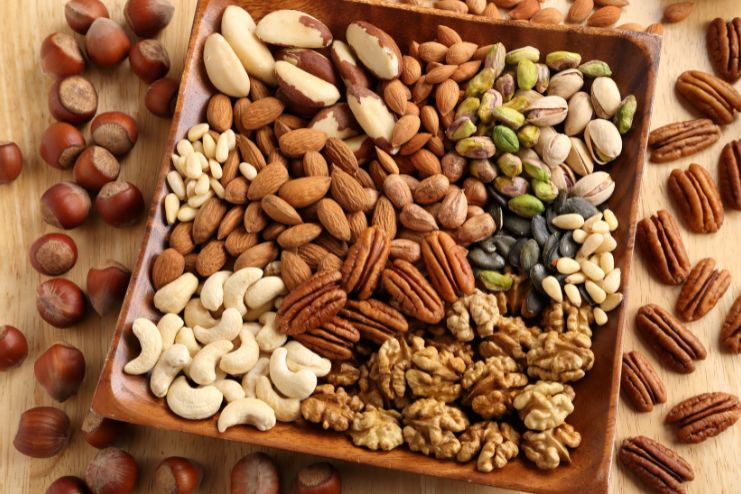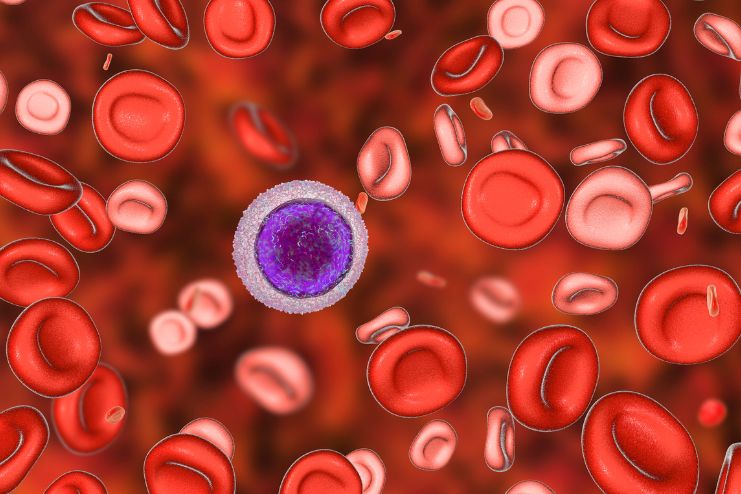Affiliate Disclaimer
Some links in this article are affiliate links. We may earn a small commission if you make a purchase through these links, at no extra cost to you. We only recommend products we find useful to our readersEarly childhood is a vital phase for brain development, and proper nutrition is essential for supporting cognitive growth, memory, and learning. A balanced diet rich in brain-boosting nutrients can help toddlers develop sharper thinking, better focus, and stronger memory retention.
However, many young children may not be getting enough of these crucial nutrients, which can lead to developmental delays or learning difficulties.
In this article, we’ll cover the essential foods and nutrients needed for toddler brain development. You’ll also learn about common nutrient deficiencies, warning signs, and practical ways to incorporate these nutrients into everyday meals.
Additionally, we’ll debunk some common myths about toddler brain nutrition and share expert insights based on research so you can make informed choices for your child’s brain health and overall development.
Let’s explore how to fuel your toddler’s growing brain!
Key Nutrients for Toddler Brain Development

A toddler’s brain is like a sponge, absorbing everything from new words to complex ideas. The right nutrition during this early stage is crucial for helping them develop strong cognitive skills, better memory, and sharper focus.
But are toddlers getting the nutrients their growing brains need? Let’s explore the most important brain-boosting nutrients:
- DHA (Docosahexaenoic Acid): Essential for the growth and development of brain cells, DHA forms a major structural component of the brain, ensuring proper neural connections and overall cognitive function. Sources:Fatty fish (e.g., salmon), fortified dairy products.
- Choline: Plays a critical role in developing memory and learning abilities by aiding in the production of acetylcholine, a neurotransmitter vital for brain communication. Sources: Eggs, soybeans, lean meats.
- Iron: Supports cognitive development by facilitating oxygen transport to brain cells, which is crucial for energy production and focus. Sources: Leafy greens (e.g., spinach), lean meats, fortified cereals.
- Zinc: Crucial for cognitive function, zinc supports brain cell growth and helps regulate neurotransmitter signaling. It also strengthens the immune system. Sources: Beans, nuts, whole grains.
- Vitamin D: Influences cognitive function and mood regulation by supporting nerve signaling and overall brain health. It also helps prevent neurodevelopmental disorders. Sources: Fortified dairy, eggs, and sunlight exposure.
- B Vitamins (B6, B12, Folate): These vitamins support brain cell communication, improve energy metabolism, and contribute to the formation of neurotransmitters. Folate, in particular, is vital for proper brain development during early childhood. Sources: Dairy, fish, eggs, dark leafy greens.
- Long-Chain Polyunsaturated Fatty Acids (Omega-3s): Omega-3s support brain structure and cognitive function by reducing inflammation and promoting the development of brain cells, especially in areas related to memory and focus. Sources: Fatty fish, fish oil, chia seeds, algal oil, and cod liver oil.
- Protein & Amino Acids: Proteins and amino acids help create neurotransmitters like dopamine and serotonin, which are critical for mood regulation, cognition, and learning. Sources: Poultry, tofu, dairy, legumes.
- Iodine: Supports thyroid function, which regulates brain growth and development, especially during the early years. Sources: Seafood, dairy, iodized salt.
- Magnesium: Regulates brain signals and supports neurotransmitter function, which can enhance focus, concentration, and learning. Sources: Nuts, seeds, whole grains.
- Antioxidants (Vitamin C, E, Polyphenols): Protect brain cells from oxidative damage, reduce inflammation, and support overall brain health by keeping cells healthy and functional. Sources: Berries, citrus fruits, nuts.
- Vitamin A: Important for brain development and vision, vitamin A ensures that the neural pathways related to vision and cognitive function develop correctly. Sources: Carrots, sweet potatoes, dairy.
READ MORE: 10 Essential Nutrients for Children’s Growth and Development
Best Brain-Boosting Foods for Toddlers

Ensuring your toddler gets the right foods can have a big impact on their cognitive development. Below is a breakdown of the best brain-boosting foods that provide the nutrients crucial for cognitive growth, memory, and focus:
1. Oily Fish (Salmon, Sardines, Mackerel)
-
- Why: Rich in omega-3 fatty acids (DHA), essential for brain development and function.
- Tips: Introduce this nutrient early by serving it thoroughly cooked and in small portions.
2. Eggs
-
- Why: Packed with choline, protein, iron, and vitamin A – all essential for memory and brain health.
- Tips: Offer scrambled, boiled, or as part of a meal to keep it interesting.
3. Nuts & Seeds (Walnuts, Chia Seeds, Flaxseeds)
-
- Why: Full of omega-3s, vitamin E, and other essential nutrients that protect and nourish the brain.
- Tips: Serve finely ground or chopped for safe and easy consumption.
4. Whole Grains (Oats, Brown Rice, Whole Wheat Bread)
-
- Why: Provide sustained energy and fiber for healthy brain function.
- Tips: Opt for whole grains over refined versions for maximum nutritional benefit.
5. Dairy Products (Milk, Yogurt, Cheese)
-
- Why: Good sources of iodine, which supports brain development, along with calcium for bone health.
- Tips: Use fortified, low-fat options to ensure a balanced intake of vitamin D.
6. Fruits & Vegetables (Berries, Leafy Greens)
-
- Why: Berries provide antioxidants, while leafy greens are rich in folate and iron, both vital for brain health.
- Tips: Encourage variety by serving colorful fruits and veggies in different textures.
7. Lean Protein (Chicken, Turkey, Beans, Lentils)
-
- Why: Essential for building and repairing brain tissue.
- Tips: Offer proteins in various forms, like soups, stews, or snacks.
8. Beans & Legumes (Kidney Beans, Lentils)
-
- Why: High in protein, fiber, and iron, all of which contribute to brain development.
- Tips: Include them as part of meals or snacks for added nutritional value.
Common Nutrient Deficiencies in Toddlers & Signs to Watch For

Toddlers are growing rapidly, both physically and mentally, and this means they require the right balance of nutrients for optimal development. However, common nutrient deficiencies can affect everything from energy levels to cognitive function.
Below, we break down the most important deficiencies to watch out for and their symptoms.
1. Iron Deficiency
-
- Symptoms: Fatigue, pale skin, irritability, decreased appetite, and, in severe cases, anemia.
- Why it matters: Iron plays a critical role in oxygen transport and brain development. Lack of iron can lead to developmental delays and weakened immunity.
2. Vitamin D Deficiency
-
- Symptoms: Bone pain, muscle weakness, impaired growth, soft bones, and skeletal deformities.
- Why it matters: Vitamin D is vital for bone health and calcium absorption, helping toddlers build strong bones.
3. Zinc Deficiency
-
- Symptoms: Frequent illness, slow wound healing, poor growth, and appetite loss.
- Why it matters: Zinc is important for immune function, growth, and overall healing.
4. Vitamin B12 Deficiency
-
- Symptoms: Developmental delays, weakness, and, in severe cases, anemia.
- Why it matters: B12 is essential for proper nerve function and the production of red blood cells.
5. Vitamin A Deficiency
-
- Symptoms: Night blindness, dry skin, and frequent infections.
- Why it matters: Vitamin A is crucial for vision, immune function, and growth.
6. Calcium Deficiency
-
- Symptoms: Dry skin, brittle nails, muscle cramps, and in severe cases, rickets.
- Why it matters: Calcium is key for strong bones and muscle function.
READ MORE: What Your Cravings Say About Your Nutritional Deficiencies
Can Picky Eating Affect Brain Development in Toddlers?
Yes, picky eating can significantly impact brain development if toddlers consistently refuse nutrient-rich foods. Deficiencies in essential nutrients like iron, vitamin D, zinc, and vitamin B12 can affect cognitive function, learning abilities, and physical growth.
By offering a balanced diet rich in these nutrients, you can support your toddler’s overall health and brain development.
How to Incorporate Brain-Boosting Nutrients into Your Toddler’s Diet

You can support your toddler’s brain development without it being a challenge. By incorporating essential nutrients in creative and fun ways, you can ensure their diet promotes cognitive growth.
Whether you’re dealing with a picky eater or just want to maximize their daily intake, here are some easy strategies to keep their meals both brain-boosting and enjoyable.
- Smart Meal Planning: Balance each meal with a variety of proteins, healthy fats, and essential vitamins. Incorporate brain-boosting foods like oily fish, eggs, and leafy greens to support cognitive development.
- Healthy Snack Ideas: Choose snacks that are delicious and nutritious for brain health, such as nuts and seeds, fruits and berries, and boiled eggs.
- Picky Eater Hacks: If your toddler is a picky eater, blend veggies into smoothies or sauces and mix pureed fish into mashed potatoes or favorite dishes. Grated veggies also work well in pasta or scrambled eggs.
- Supplements: If you’re concerned about deficiencies, consult a pediatrician. They can determine whether supplements, such as omega-3s or vitamins, are necessary to meet your toddler’s nutritional needs.
Tips for Incorporating Brain-Boosting Foods
- Start with a Balanced Diet: Offer a wide range of foods from all food groups to ensure variety and nutrition.
- Incorporate Oily Fish: Aim for at least one serving of oily fish, like salmon or sardines, per week.
- Make It Fun: Present food in appealing, colorful ways, like cutting fruits and vegetables into fun shapes.
- Don’t Force It: If your toddler refuses a certain food, try offering it again later or preparing it differently.
- Snack Smart: Choose healthy, brain-boosting snacks such as fruits, vegetables, nuts, and yogurt.
- Hydrate Well: Encourage your toddler to drink plenty of water throughout the day.
- Engage and Interact: Activities like reading, playing, and talking with your child are just as essential as a healthy diet for stimulating brain development.
Do Toddlers Need Supplements for Brain Health?
Parents should prioritize whole foods as the primary source of nutrients for toddlers, as they provide the best support for brain health. However, in some cases, toddlers may have deficiencies that are difficult to address through diet alone.
If a toddler is lacking in essential nutrients like DHA, iron, or certain vitamins, supplements can help fill those gaps. It’s important to consult a pediatrician before giving any supplements to ensure they are necessary and safe for your child’s brain development and overall health.
Myths About Toddler Brain Nutrition

As parents, we often come across numerous claims about what foods are essential for our toddler’s brain development. However, not all of these are true. It’s important to separate facts from myths to ensure your child is getting the right nutrients for their growing brain.
Myth: Toddlers don’t need much fat in their diet.
Fact: Healthy fats, especially omega-3s, are essential for brain development and growth.
Myth: Sugar boosts brain power.
Fact: Excess sugar can cause energy crashes and mood swings, not better focus or learning.
Myth: Milk provides all essential nutrients.
Fact: While milk is nutritious, a well-rounded diet with a variety of foods is necessary for complete nutrition.
Myth: Supplements are better than whole foods.
Fact: Whole foods are the best sources of nutrients for brain health, while supplements should only be used under medical advice.
Myth: Brain development is solely genetic.
Fact: Genetics play a role, but daily interactions, play, nutrition, and verbal engagement are crucial for brain development.
Myth: Learning begins with preschool.
Fact: Learning starts from birth, with parents being a child’s most important teachers.
Supporting your toddler’s brain development starts with a balanced diet rich in essential nutrients and plenty of playful engagement.
Expert Insights & Research on Toddler Brain Nutrition

Ensuring optimal brain development in toddlers involves understanding the impact of specific nutrients and dietary patterns. Research highlights the importance of certain fats, vitamins, and probiotics in supporting cognitive functions.
DHA-Rich Diets Enhance Cognitive Skills
Docosahexaenoic acid (DHA), an omega-3 fatty acid, is vital for brain development. Studies indicate that DHA supplementation can positively influence attention and executive functioning in children. For instance, research involving children aged 7 to 14 years demonstrated improvements in executive functioning with DHA supplementation.
Additionally, a study from BC Children’s Hospital found an association between blood DHA levels and cognitive performance in five-year-olds, suggesting a link between DHA and cognitive abilities.
READ MORE: How Poor Nutrition Affects Your Child’s Academic Performance
Whole Foods Are Preferred Over Supplements
Pediatric experts recommend obtaining nutrients through a balanced diet rather than relying solely on supplements. Whole foods offer a rich and complex array of nutrients that work synergistically to support brain health.
The American Academy of Family Physicians emphasizes the importance of healthy fats from sources like peanut butter, milk, meat, avocados, and eggs, reinforcing the role of whole foods in providing essential nutrients.
Moreover, the University of Utah’s health resources point out that most children do not require additional vitamins and supplements if they consume a variety of healthy foods, highlighting the sufficiency of a well-rounded diet.
Gut Health Influences Brain Function
Emerging research underscores the connection between gut health and brain function, often called the “gut-brain axis.” A diet rich in probiotics and fiber supports a healthy gut microbiome, which in turn can influence mood, behavior, and cognitive functions.
Incorporating foods like yogurt, kefir, and fiber-rich fruits and vegetables can promote gut health, potentially enhancing brain function. Researchers need to further explore this relationship.
Integrating these expert insights into your toddler’s nutrition plan can foster optimal brain development and cognitive function. Prioritizing DHA-rich foods, emphasizing whole foods over supplements, and supporting gut health are key strategies for nurturing a healthy, developing brain.
Final Thoughts
In conclusion, optimal brain development in toddlers is heavily influenced by proper nutrition. DHA-rich foods play a crucial role in enhancing cognitive functions such as attention and problem-solving.
A well-balanced diet that includes healthy fats, proteins, and complex carbohydrates is crucial for brain health as it provides the necessary vitamins and minerals for sustained cognitive development.
Gut health also plays a vital role in cognitive development. This “gut-brain axis” suggests that a healthy digestive system can positively influence mood, behavior, and cognitive functions. Including probiotics and fiber in your toddler’s diet is key. Foods like yogurt, kefir, and fruits help support this connection.
With careful meal planning and expert guidance from pediatricians, parents can confidently meet their child’s nutritional needs during these critical early years.
References
- https://nutricia.com.au/aptamil/baby-and-toddler/health-and-nutrition/brain-support-the-11-key-nutrients-to-support-your-childs-brain-development/
- https://publications.aap.org/aapnews/news/6218/Feeding-brain-development-Key-nutrients-essential?autologincheck=redirected
- https://www.uclahealth.org/news/article/baby-brain-food-7-foods-to-fuel-brain-development
- https://www.bbcgoodfood.com/health/family-health/top-foods-boost-your-childs-brainpower
- https://elsenutrition.com/a/resources/nutrition/nutrient-deficiencies-in-children
- https://www.healthshots.com/preventive-care/family-care/common-nutritional-deficiencies-in-toddlers/
- https://www.healthline.com/nutrition/brain-food-for-kids
- https://www.parent.app/blog/nutrition-and-brain-development-in-early-childhood
- https://earlychildhood.qld.gov.au/early-years/early-years-brain-development
In this Article

















